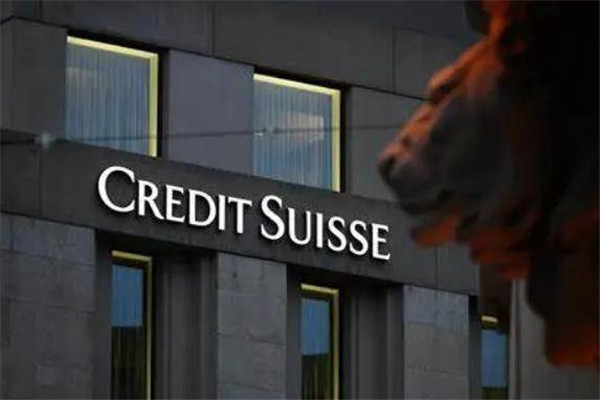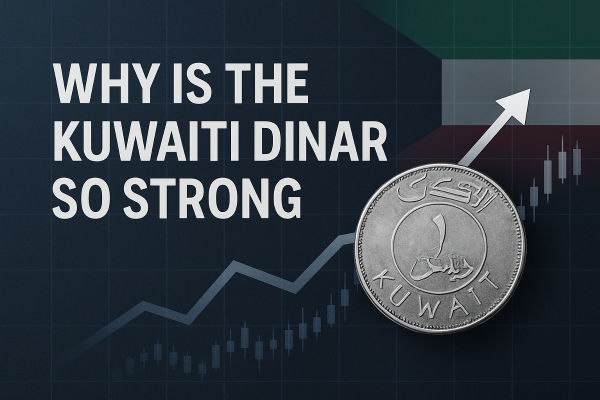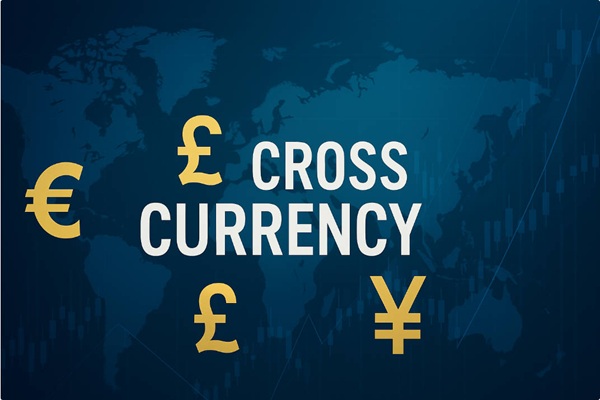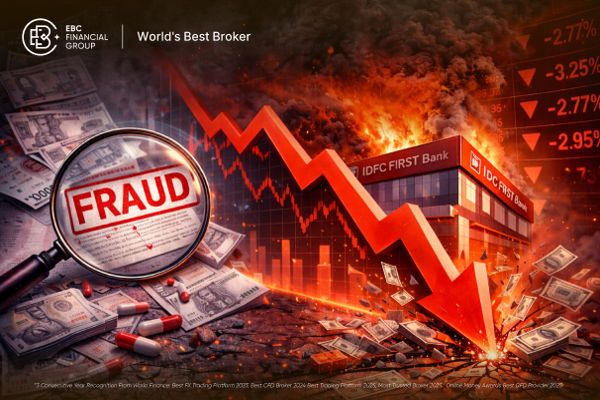Credit Suisse and its old rival UBS have always been deeply associated with
the Swiss country. Their glory and collapse are inextricably linked to the
entire country. Today, we not only need to discuss the background of the
collapse of Credit Suisse, but more importantly, we need to delve deeper into
the complex connection between Credit Suisse and the Swiss government.
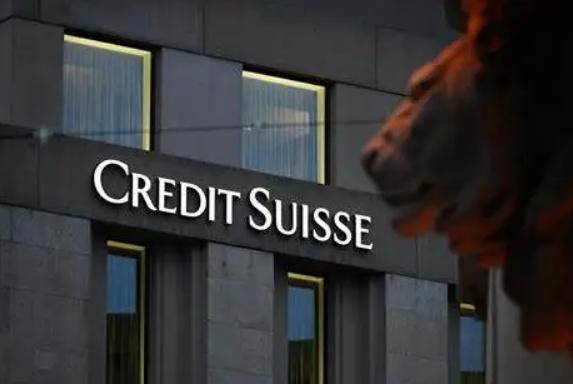
Credit Suisse was established in 1856, which is correct. It has a history of
over 160 years. Until 1934, Switzerland passed a very important bill called the
Federal Banking Act. The core of this bill is confidentiality. In short, it
stipulates that Swiss banks cannot disclose customer information to anyone,
including any third-party institutions, whether they are the US government, the
United Nations, or the Swiss government. As long as the customer does not agree
or raise objections, the bank cannot disclose it. This is not just a choice, but
a legal requirement. You can understand that Swiss banks are not safer because
safes are thicker, but because of this law.
This has attracted many customers
around the world who have extremely high privacy requirements, of course, which
may also include some less clean money, such as tax evasion, money laundering,
drug trading, etc. Even during World War II, the Nazis deposited a large amount
of gold in Swiss banks, and Hitler himself also deposited 11 billion imperial
marks in Swiss banks. But the Swiss people's philosophy is quite wise. They
believe that they should remain neutral, just like a bank that only needs to
protect customer information and property security. As for whether the money is
legal, they do not care. In addition, Switzerland's political stability and
developed country led to the rapid rise of the banking industry after World War
II, making it the world's largest offshore financial center.
At the beginning of the 21st century, a quarter of global cross-border
private wealth was concentrated in Swiss banks. Among numerous Swiss banks,
Credit Suisse and UBS have emerged. These two banks have always had similar
business models, customer groups, and even frequent job hopping among employees.
Although there are differences in some aspects, overall, these two banks are
very similar. UBS is relatively larger, while Credit Suisse is more flashy in
certain areas, especially its investment banking department. But overall, they
are very similar.
At the beginning of the 21st century, Credit Suisse's influence reached its
peak. Although not the absolute leader in various global businesses, it is very
famous. In the 2007 ranking, although Credit Suisse did not rank first, it
entered the top five in fields such as high-yield bonds, IPOs, and mortgage
bonds and performed excellently in other fields.
This bank has performed
particularly well in its private banking and wealth management businesses,
especially after undergoing a restructuring in the early 21st century. Credit
Suisse's private banking business has maintained a growth rate of nearly 20%,
even surpassing its old rival UBS at one point with a market value of $80
billion. During the financial crisis, although Credit Suisse also suffered
significant losses, it did not receive government assistance, which is quite
remarkable. By contrast, UBS has been able to recover through government
assistance.
After the financial crisis, major investment banks and banking businesses are
gradually recovering, and at this time, Credit Suisse seems to have risen.
However, Credit Suisse's problems have begun to surface. And this problem is not
short-term but gradually melting over more than a decade. The first thing to be
affected is Credit Suisse's private banking business, which, as we mentioned
earlier, has always been a concern because it involves a large amount of
potentially unclean money. International organizations have been conducting
investigations into Credit Suisse's various businesses since the beginning of
the 21st century, mainly focusing on the issue of tax evasion.
In May 2014, Credit Suisse faced unprecedented difficulties and was found
guilty of helping US citizens evade taxes, with fines of up to $26.6 billion. In
fact, since the 2008 financial crisis, the US Department of Justice has been
imposing fines on major banks, including Credit Suisse, UBS, and Faxing.
However, Credit Suisse's fine amount far exceeds that of other banks, which also
implies how serious its problem is in helping customers evade taxes.
But what makes people laugh is that after Credit Suisse was convicted and
fined, its stock price did not fall but slightly increased. Why on earth is
this? In fact, the market had long known that Credit Suisse had assisted clients
in tax evasion, so this conviction and fine did not come as much surprise to the
market. On the contrary, the market believes that the fine amount is relatively
low and acceptable. This also marks the beginning of action by the US Department
of Justice against Credit Suisse, marking the beginning of Credit Suisse's
gradual predicament.
In the same year, in 2014, Switzerland signed a bill called FAST in the
United States, requiring the provision of US taxpayer account information to
prevent tax evasion. This forced Swiss banks to break previous federal banking
laws.
In March 2015, Credit Suisse welcomed a new CEO, Tan Tianzhong. This has
attracted widespread attention, as Credit Suisse has had a Chinese CEO for the
first time in its history. Tan Tianzhong is a senior banker, and although I
won't elaborate on his resume, he can be said to be very experienced. On the day
he took office, Credit Suisse's stock price surged by 7.5%, and the market
placed high expectations on him. However, an incident that occurred after Tan
Tianzhong took office became the headline news in the global financial industry,
which was the spy gate incident at Credit Suisse.
There has always been a conflict between Tan Tianzhong and a senior executive
of Ruixing, as they are actually neighbors. At a cocktail party in early 2019,
they had a heated argument over some minor matters, such as the noise from home
decorations and a tree blocking their view. Later, this executive was forced out
of Credit Suisse and then joined UBS, taking away some former executives from
Credit Suisse. Credit Suisse hired detectives for surveillance in order to
gather evidence to suppress this executive, but unexpectedly, the detectives
were arrested in public. Later investigations found that this was not the first
time Credit Suisse had carried out such actions, as they had previously
monitored other executives and third parties.
Although this incident has little to do with Credit Suisse's business, it has
had extremely negative impacts. Tan Tianzhong had to resign as CEO, and the
market's trust in Credit Suisse further weakened.
In 2021, Credit Suisse underwent another major executive reshuffle, with a
new CEO taking office, attempting to reform and reverse its decline. However,
changes in the global financial environment have exacerbated Credit Suisse's
problems, including interest rate hikes by the Federal Reserve and global
liquidity tightening. By the end of 2022, due to the loss of market confidence
in Credit Suisse, a large number of deposits and high-net-worth customers began
to withdraw, and Credit Suisse's deposit loss exceeded one-third, approximately
$140 billion. Market rumors continue, and Credit Suisse seems to be about to
fall while the government tries to calm market sentiment.
Historical events at Credit Suisse and UBS
| Feature/Event |
Credit Suisse |
UBS |
| Year of Establishment |
1856 |
1862 |
| Federal Banking Act |
Passed in 1934, emphasizes client confidentiality |
Passed relatively later, involves client information disclosure |
| Performance during Financial Crisis |
Did not receive government bailout, suffered losses |
Revived with government assistance |
| 2014 Fine Event |
Fined $26.6 billion for aiding tax evasion |
Not subjected to similar high fines |
| Private Banking and Wealth Management Business |
Under scrutiny, involved in tax evasion issues |
Relatively stable business with fewer tax evasion concerns |
| Espionage Scandal |
CEO resigned, exposed improper monitoring of executives |
Not involved in similar monitoring incidents |
| 2022 Deposit Loss |
Loss of over one-third of deposits, around $140 billion |
No similar scale of deposit loss |
| Government Intervention |
Government demanded UBS to acquire Credit Suisse, stabilizing market sentiment |
Not subjected to similar government demands |
In the end, the government requested UBS acquire Credit Suisse, although this
was a notice rather than a negotiation. UBS and Credit Suisse reached an
agreement after lengthy negotiations, stabilizing market sentiment. However, for
Credit Suisse, the issue may be far from resolved.
This series of events marks a significant transformation in the Swiss
financial community and also reflects the challenges facing the global financial
industry. The collapse of Credit Suisse is a complex story involving
confidentiality laws, tax evasion issues, espionage incidents, and the
constantly changing global financial environment. The Swiss financial industry
still needs to adapt to the constantly changing situation and continue to cope
with international and domestic pressures.
Disclaimer: This material is for general information purposes only and is not intended as (and should not be considered to be) financial, investment or other advice on which reliance should be placed. No opinion given in the material constitutes a recommendation by EBC or the author that any particular investment, security, transaction or investment strategy is suitable for any specific person.
